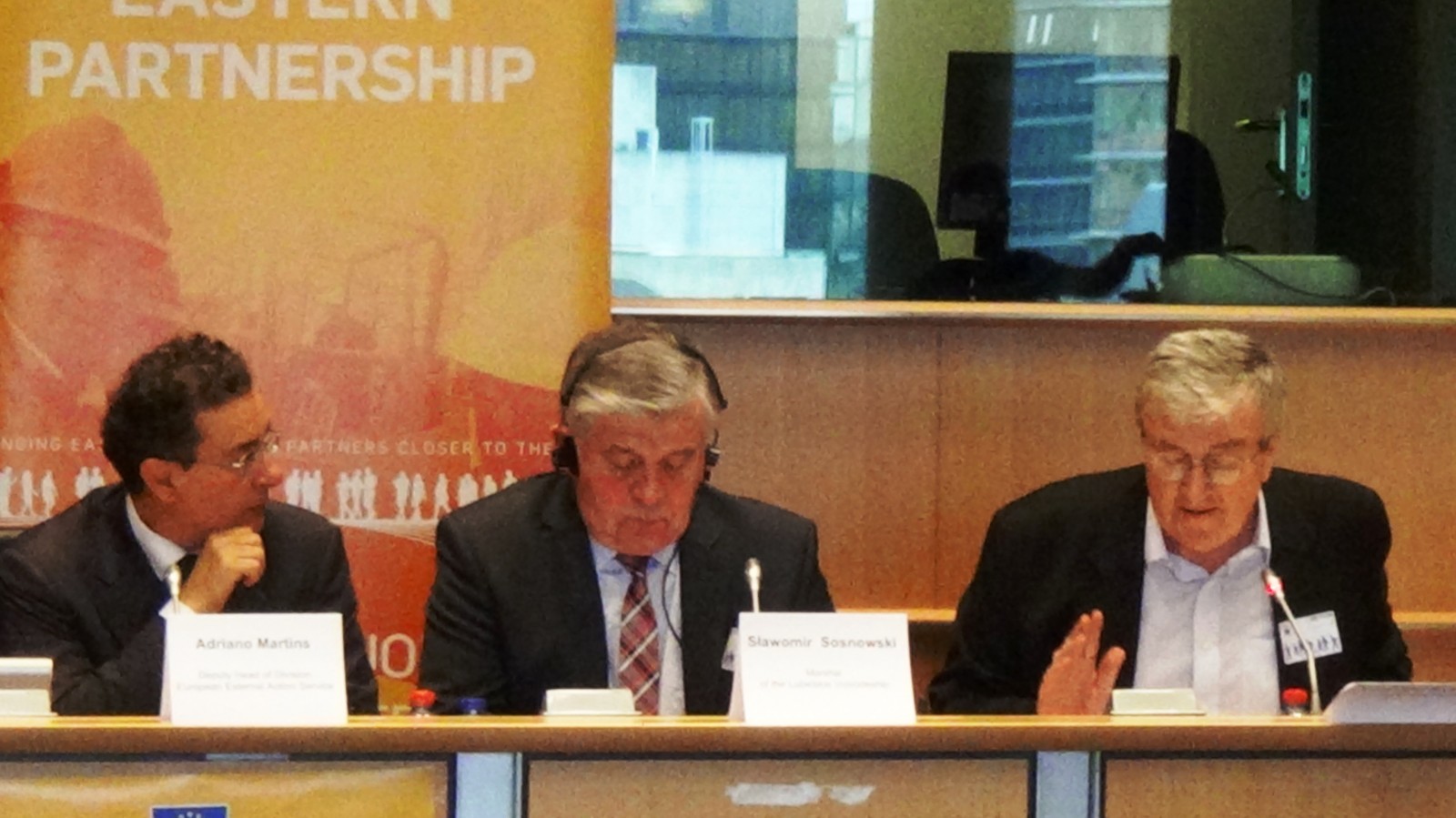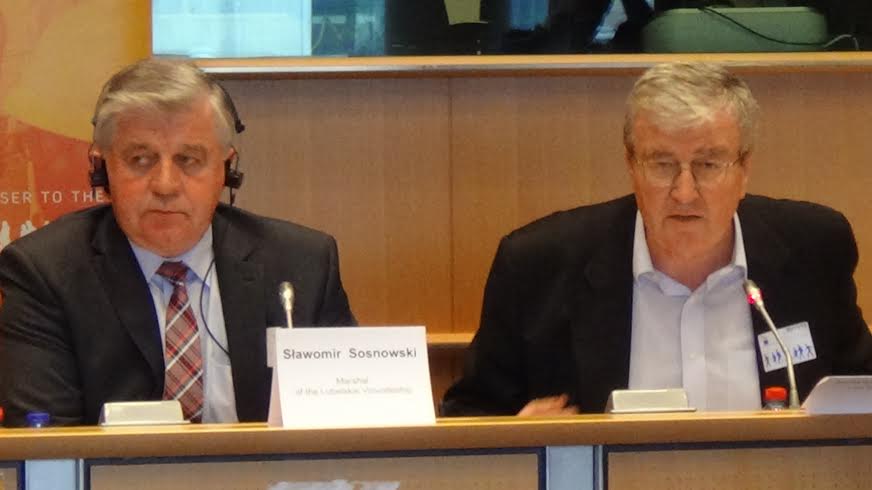|
IN THE SPOTLIGHT |
Eastern Partnership Civil Society Forum
|
|
EaP CSF presents at conference in Brussels focusing on future of Eastern PartnershipThe Eastern Partnership initiative of the European Union has been a significant achievement, former CSF steering committee co-chair Krzysztof Bobinski said at a meeting on 5 November in the European Parliament organised by the East Poland House, a lobby-group bringing together Poland’s eastern regions. Defending the policy, Bobinski praised officials from the External Action Service (EEAS) who had worked hard to promote European values and draft regulations on the Eastern Partnership at “countless, often boring meetings” in a method, which was like “dripping water onto a stone” in a bid to dissolve it. Mr. Bobinski further commended DG DEVCO officials for supporting the EaP CSF, adding that outgoing Commission officials Catherine Ashton and Štefan Füle had often been quicker to criticise human rights violations in the Partnership countries than had the CSF itself. Mr. Bobinski called for the policy to be continued as the EU’s drive to bring these countries closer to Europe supports pro-European civil society activists in Armenia and Belarus[I11] .
Finally, Mr. Bobinski re-iterated the need for independent civil society organisations to oversee the implementation of DCFTAs in Georgia, Moldova and Ukraine [I12] and criticized the Azeri authorities for their unprecedented drive against civil society, which includes locking up activists such as Anar Mammadli and Leyla Yunus and harassing civil society organizations. The meeting heard that Jean Claude Juncker, the new head of the European Commission had initiated a re-examination of the Eastern Partnership policy and that reports on a separate review of the policy would be presented at an EU summit in Riga in May 2014: “civil society organisations must prepare their own input for Riga and be heard by the Commission’s own review as well” “The Eastern Partnership policy has till now adopted a very mature approach to the question of how to bring about change. It must be continued” he added in response to critics who claimed the policy had been poorly constructed and ill-advised in ignoring Russian sensitivities.”
The conference, entitled “Eastern Partnership Reality Check. Political Challenges and Future Agenda” brought together officials from EU institutions, member state diplomatic missions and the Eastern Partnership countries. |
Project funded by the European Union
![]()









